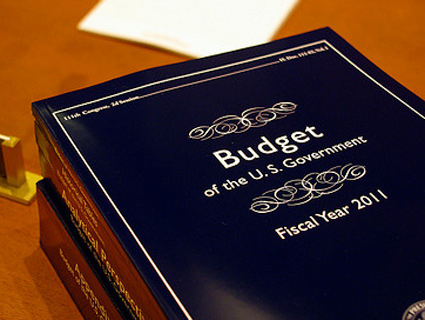Democrats have put Republicans on the defensive by hammering them Medicare, and on Tuesday scored a major win with Democrat Kathy Hochul’s victory in New York’s special congressional election—a race that became a referendum on Rep. Paul Ryan’s controversial proposal. The win is likely to make Medicare even more central to the Democratic message in the 2012 elections.
As such, it’s clear that the Dems have ruled out any steep cuts to Medicare as part of a bigger deal over the budget and deficit. But top Democrats are still promising to strike a deal with Republicans that includes major spending reductions, even though there are increasingly fewer places where they could realistically extract the money.
Vice President Joe Biden is leading a bipartisan deficit reduction group on Capitol Hill that is pledging to make $1 trillion in cuts, Bloomberg reports. But where will the money come from? Medicare is unlikely to be part of the equation, and Senate Dems previously vowed against touching Social Security. Likewise, Bloomberg reports, House Majority Leader Eric Cantor (R-Va.) reaffirmed the GOP’s position on Tuesday that “tax increases cannot pass the House.”
What’s left? Among other things, reductions in discretionary spending—i.e. funding for federal programs and agencies that Congress must approve each year—as well as other mandatory spending programs for low-income Americans, including Medicaid, food stamps, and welfare. In my latest story, I explain how the House GOP is moving full steam ahead to lay down the goalposts for these cuts. If Congress and the White House manage to move toward any kind of budget deal, these kind of reductions could be inevitable.














